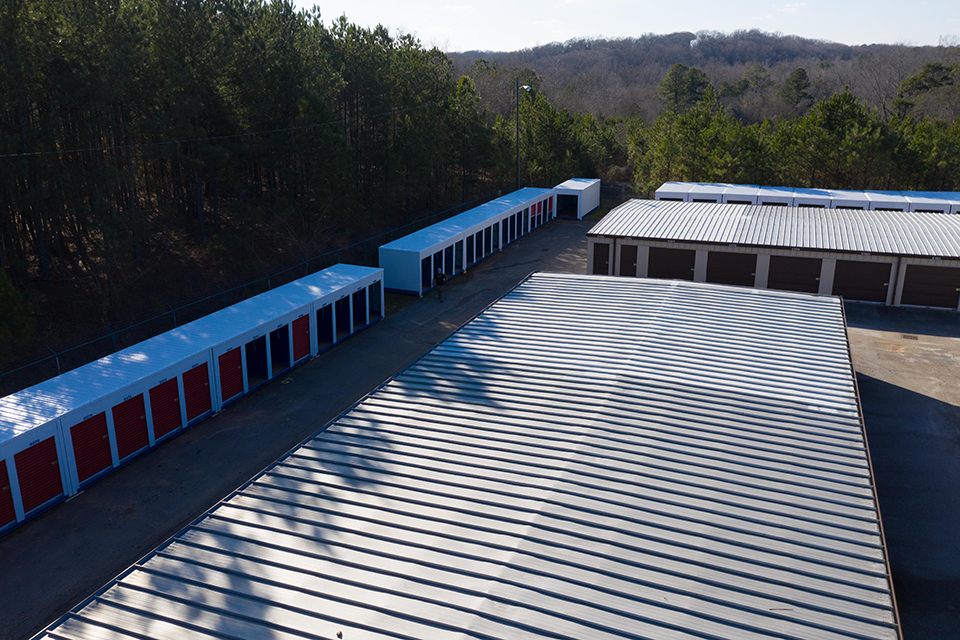Developing or expanding a self-storage facility comes with its own set of risks and challenges. To make things easier, wouldn’t it be great to learn from the mistakes that others have made? We asked some leaders in the industry about the biggest obstacles they encountered. One of the most resounding recommendations was to complete a feasibility study before developing or expanding your facility. Also, we heard that some of the most typical mistakes are easy to avoid.
An in-depth look prepares you for important decisions. For example, learn how to hire management, choose your security, doors and driveways. You don’t need to tackle these decisions alone, because you can learn from the industry! Here are 10 recommendations to help you along the way:
1. Get a feasibility report.
There are many expert resources in our industry who can puzzle out your property for maximum revenue. Consider hiring an expert to produce a report detailing the feasibility of your project. In addition to the property, they will look at the local demand, demographics, pricing options, and zoning regulations.
2. Work with a manufacturer who has reputable partners.
Developing a self-storage facility involves putting together a lot of moving parts. Luckily, you don’t have to tackle it all on your own. Be sure your manufacturer has trusted partners. For instance, look for partners such as lenders, contractors, consultants and Realtors who can help you along the way.
3. Research your local competition.
Learn about the local demand. It’s important to identify the location, size, rental rates, occupancy and other details of your competitors. Make your business stand out by researching the marketplace and finding out what you can provide that other storage facilities can’t.
4. Hire a manager with marketing and technical experience.
Your self-storage facility’s manager is the first impression of your business. It’s important to find a well-rounded self-storage manager who possesses a range of both hard and soft skills. For example, look for experience in sales, computer, social media, site maintenance, and marketing. Similarly, non-technical skills are important. For instance, organization, open-mindedness, empathy, dependability, and adaptability.
5. Plan for expansion.
Figure out what types of units will lease and start there. You can always plan to expand in the future by building new structures on unused land or adding relocatable storage units. No foundation is required for relocatable units, so you can easily add more as your project progresses.
6. Be sure your driveways and turning clearances are big enough.
Traffic flow is an important consideration for any self-storage site. Customers need to easily enter your property and safely navigate to their units. Pay attention to loading and unloading areas. For example, can large trucks and moving vans maneuver throughout the property with ease?
7. Check ADA requirements.
Consider all scenarios when you build your facility’s entrance and exit. For instance, remember to check out the local zoning, building and ADA regulations. Businesses cannot discriminate against people with disabilities. Be sure your facility complies with the regulations.
8. Choose doors that make the most sense for your clients.
Boxwell portable containers and relocatable self-storage units are customizable and built with a variety of specifications and features. One key option to choose from is which type of door is right for you: roll up or swing? The doors are the most frequently used part of each unit, so be sure to choose a door that works best for your business and clientele.
9. Look for the latest technology for security and locking options
Check out the innovative, “smart” locks and hands-free entry systems available. Your facility will be secure and easy to protect. New, touch-free entry systems use Bluetooth technology. This gives your customers access to the self-storage facility and their unit from their smart device. These systems are compatible with Boxwell’s relocatable units.
10. Choose seamless relocatable units that are weather and rodent proof.
Your customers need their items to be safe from the water, wind, dust and rodents. Therefore, look for a manufacturer that produces units that are solid and seamless. Features such as galvanized rust-proof steel, three layers of paint protection, and innovative designs, for example.
In conclusion, it’s best to have a team of professionals working with you as you begin your development or expansion. The self-storage industry is growing and evolving with the times. If you’re second-guessing your decisions, be sure you have resources and people who’ve been through it to ask for help. Remember that no two facilities are the same, which is a good thing. Similarly, your experiences will be completely different from any one else’s. But, it’s comforting to know that you’re not alone with any challenges you may be facing during your development or expansion.

Boxwell’s relocatables are the ultimate convenience for businesses looking to increase rentable square feet at a fraction of the cost of traditional structures. Work with a Boxwell representative to decide on an ideal, moveable storage unit mix, custom colors, door configurations and more. Once you place an order, we deliver and install your Boxwell relocatable self-storage units. After that, you’ll be ready to rent them in no time.
Boxwell Self-Storage Case Study
Boxwell recently added 7,680 square feet (126 new rental units) to a self-storage facility. Watch our process and see how easy it can be to increase revenue at your business, today!
